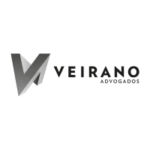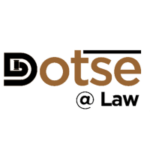-
Are there specific legal requirements or preferences regarding the choice of entity and/or equity structure for early-stage businesses that are seeking venture capital funding in the jurisdiction?
In the Netherlands, there are no specific legal requirements or preferences regarding the choice of entity for early-stage businesses. It would be most preferential to use a Dutch private company with limited liability (besloten vennootschap met beperkte aansprakelijkheid), the so-called B.V., for the purposes of setting up early-stage businesses that are seeking venture capital funding in the Netherlands. The B.V. is designed to be a flexible instrument for a closed circle of shareholders (the company’s shares have to be registered) wishing to retain close control over their company. The B.V.’s legal framework includes limited rules on capital protection and the possibility to incorporate detailed shareholders’ arrangements and tailored governance provisions in the articles of association of the B.V. This flexibility is the reason why the B.V is a very suitable entity for financing and structuring purposes.
-
What are the principal legal documents for a venture capital equity investment in the jurisdiction and are any of them publicly filed or otherwise available to the public?
The following legal documents are generally required for the implementation of a venture capital equity financing in a B.V.:
- an investment / subscription agreement in which the issuing company and the venture capital investor agree upon the terms and conditions of the issuance of shares to the venture capital investor and the payment of the investment amount;
- a shareholders’ agreement to which each shareholder and the issuing company is a party and which records each of the rights and obligations pursuant to their shareholdings in the issuing company;
- a notarial deed of amendment of the articles of association of the B.V., executed by a Dutch civil law notary in the Netherlands, determining the relationship between all corporate bodies of the company in terms of division of tasks, control, decision-making and entitlement to distributions and pursuant to which the articles of association are brought in line with the shareholders’ agreement (to the extent required);
- a notarial deed of issuance, to be executed in front of a Dutch civil law notary in the Netherlands, pursuant to which the shares in the share capital of the B.V. are being issued by the issuing company to the venture capital investor.
It is noteworthy that a Dutch civil law notary shall only be able to execute the notarial deed of issuance in case a person with representative power attends the meeting with such notary or pursuant to a validly issued power of attorney issued by a person with representative power of the venture capital investor. In case a power of attorney is used, the signature of such person needs to be legalized (and in case legalization is being done by a person practicing outside the Netherlands, apostilled). In case the venture capital investor is using a non-Dutch entity for the purposes of holding the shares in the capital of the B.V., a Dutch civil law notary generally requests a confirmation statement in which a lawyer or notary (qualified in the country of incorporation of such non-Dutch entity) confirms that the person signing the power of attorney is authorised to represent the venture capital investor. Some Dutch civil law notaries offer the possibility of video-legalization to signatories residing outside the Netherlands, which significantly speeds up the legalization process. However, not all Dutch civil law notaries are willing to cooperate with video-legalization.
The articles of association of a B.V. are required to be filed with the trade register of the Dutch Chamber of Commerce and are publicly available.
-
Is there a venture capital industry body in the jurisdiction and, if so, does it provide template investment documents? If so, how common is it to deviate from such templates and does this evolve as companies move from seed to larger rounds?
The NVP (Nederlandse Vereniging van Participatiemaatschappijen) is the industry body and public policy advocate for the private equity and venture capital industry in the Netherlands. The NVP does not provide for template investment document such as the BVCA in the United Kingdom or the NVCA in the United States of America. There is a private initiative in the Netherlands called Capital Waters, which provides for model documents for early-stage investments. Although these model documents are increasingly popular, these model documents are not as widely used as, e.g., the BVCA model documents in the United States and deviation for these model documents is quite common.
There are also a number of other initiatives supporting start-ups and scale-ups, including Techleap, an organization running programmes, host events, create and share resources, work with VCs and LPs and collaborate with the government on startup policy.
-
Are there any general merger control, anti-trust/competition and/or foreign direct investment regimes applicable to venture capital investments in the jurisdiction?
In case a transaction leads to positive or negative joint or sole control, it may be subject to a notification obligation to the Netherlands Authority for Consumers & Markets (ACM) in case the turnover thresholds for notification in the Netherlands are exceeded (and there is no notification requirement to the European Commission). This is the case where (i) the combined worldwide group turnover of all undertakings involved in the concentration in the previous calendar year was EUR 150 million or more whilst at the same time (ii) at lease two or more undertakings individually realised a group turnover in the Netherlands of EUR 30 million or more in the previous calendar year. In a joint control situation, also the turnover of two envisaged parent companies can exceed these thresholds, even if the turnover of the target entity is below EUR 30 million (as will often be the case in venture capital transactions).
In the near future, certain transactions below the thresholds may also come under the jurisdiction of the ACM. First of all, in 2023, the European Court of Justice issued its Towercast (case C-449/21) judgment, in which it confirmed that national competition authorities may act against a transaction below the European and national merger control thresholds under the EU prohibition of abuse of a dominant position, in case that acquisition reinforces an existing dominant position. Under Dutch national competition law however, Article 24(2) of the Competition Act currently precludes the ACM from acting against a concentration under the Dutch prohibition of abuse of a dominant position. However, a bill that will enable the ACM to act against concentrations below the notification thresholds under the prohibition of abuse of a dominant position (by striking Article 24(2) from the Competition Act) is currently pending before the Senate (Eerste Kamer). We deem it likely that this amendment will pass rather soon (in the coming months).
Furthermore, a legislative initiative bill is currently pending in the House of Representatives (Tweede Kamer) to give the ACM the power to assess mergers and acquisitions below the thresholds if it sees potential competition risks (‘call-in’ power). If this bill would be adopted, the ACM would be entitled to (also retroactively) ‘call-in’ such concentrations for review within four weeks of the earliest of the following dates: (i) the date on which one of the undertakings involved in the concentration has publicly announced in the Netherlands its intention to bring about the concentration, (ii) the date on which the ACM becomes aware of the intention to bring about the concentration, and (iii) six months after the date on which the agreement by which the concentration is brought about An internet consultation on the bill is currently underway (until 18 April). After this consultation closes, the debate in Parliament on the bill will resume.
In case of the acquisition of a minority interest, control can be established were this is accompanied by the acquisition of veto rights over (i) appointment/dismissal of senior management, (ii) the annual budget, (iii) the business plan, and/or (iv) important investments outside the business plan.
The Netherlands also has a general FDI regime as well as sector specific legislation, which may be applicable to certain targets depended on its activities, whereas the Dutch merger control only is applicable in situation where there is a change of control, the Dutch FDI regime may also apply in scenarios in which no control is established, in case significant influence is being obtained. More specifically, a minority transaction may trigger the regime if the target entity is a provider of ‘highly sensitive technology’ and 10%, 20% or 25% of the voting rights is acquired and/or if the purchaser will have the right to appoint one board member of the target (such stake in the voting rights and/or the power to appoint a board member is referred to as ‘significant influence’ in the Dutch FDI Act).
-
What is the process, and internal approvals needed, for a company issuing shares to investors in the jurisdiction and are there any related taxes or notary (or other fees) payable?
Pursuant to Dutch law, shares in a B.V. are issued pursuant to a notarial deed of issuance executed by a Dutch civil law notary in the Netherlands (which can be done based on powers of attorney). For the B.V. to be able to issue shares, a resolution of the general meeting of shareholders is required, provided that the B.V.’s articles of association do not contain a deviating arrangement whereby another company body has been appointed as body being able to take the resolution to issue shares.
There are no transfer / issuance taxes or stamp duties applicable to the issuance of shares in a B.V. in the Netherlands. Generally speaking, the Dutch civil law notary charges time spent on the matter (times the hourly rate), similar like lawyers and does not invoice any other (notarial) fees.
-
How prevalent is participation from investors that are not venture capital funds, including angel investors, family offices, high net worth individuals, and corporate venture capital?
We typically see angel investors, high net-worth individuals (typically ex-founders reinvesting their proceeds from exits into new start-ups of other promising entrepreneurs) and friends & family among the shareholders on the cap tables of Dutch start-ups and scale-ups, mostly investing in shares in early-stage rounds. Often, these parties’ equity interests are pooled in a pooling vehicle in the form of a Dutch foundation (a so-called stichting administratiekantoor), whereby economic interests are separated from the voting rights. The foundation will hold the legal title to the shares, and the management board of the foundation (typically formed by a representative of these parties or the company) casts the voting and meeting rights and the foundation issues depositary receipts to these parties entitling them to the economic rights to the underlying shares.
Corporate venture capital is increasingly common in the Netherlands and more and more family offices are also providing capital to early stage or growing companies.
-
What is the typical investment period for a venture capital fund in the jurisdiction?
Venture capital funds in the Netherlands generally have an initial investment period of 5 to 7 years, however, the initial investment period depends on the sector / type of investment of a venture capital fund. The fund’s life cycle typically ranges between 10 to 12 years.
-
What are the key investment terms which a venture investor looks for in the jurisdiction including representations and warranties, class of share, board representation (and observers), voting and other control rights, redemption rights, anti-dilution protection and information rights?
The key investments terms which investors are looking for is very dependent on (i) the stage of the company, (ii) the investment amount and corresponding shareholding percentage, (iii) the competitiveness of the funding round, and (iv) the history of the investor with the founders. We mainly see requests and discussions on the following rights:
- R&W: the warranties are typically given by the company and in some cases, the founders (albeit that the founders in that case generally give a limited set of warranties with limited recourse possibility). In venture capital transactions, usually less importance is given to the warranties, given the fact that the venture capital investors typically take a minority stake. It is more considered as a disclosure exercise.
- Class of share / liquidation preference: a venture capital investor typically requests preferred shares, entitling the venture capital investor to a preferred position in the liquidation waterfall (offering downside protection). In tech-driven deals we typically see a (one-time) non-participating liquidation preference in combination with ab conversion right that can be used by the venture capital investor at any time as it deems fit.
- Governance rights: Venture capital investors typically request (i) a direct appointment right for a supervisory board member (in case of a two-tier board structure), a non-executive board member (in case of a one-tier board structure) or an advisory board member (in case catered for in the shareholders’ agreement only), and (ii) board observer rights for each board in the corporate structure of the company and any sub committees.
- Information rights: most venture capital investors seek information rights, including regular provision of financial information, information on ESG related topics and typically for US-based investors, information relating to certain US tax matters. Investors typically also have a general right to request information and to inspect the books and records of the company.
- Reserved Matters: venture capital investors always request (veto) rights with respect to the protection of their investments (such as, but not limited to amendment of the articles of association, issuance of senior raking equity, voluntary liquidation, etc.). We typically see that venture capital investors would like to avoid individual veto rights for any of the investors and rather request for veto rights for a majority of a specific group of investors. In early-stage rounds, venture capital investors generally also request rights with respect to strategic or operational matters.
- Exit Rights: typically, the shareholders’ agreement contains a (i) drag along right (allowing a majority of shareholders to drag the other shareholders to sell their shares to a bona fide third party buyer), (ii) a tag along right, ensuring that if a bona fide third party buyer is seeking to take a controlling interest, the investor has the right to sell its shares too.
- Anti-dilution protection: the investor usually seeks protection of the value of its shares in case of a down-round in the form of an anti-dilution protection, which is usually calculated on a broad-based weighted average basis.
-
What are the key features of the liability regime (e.g. monetary damages vs. compensatory capital increase) that apply to venture capital investments in the jurisdiction?
Typically, as a remedy for the damages suffered by the investor, the investor has the option, in its sole discretion, to decide whether as a remedy of a breach of the warranties it shall receive monetary damages or whether the investor shall be compensated by means of the issuance of share capital increase.
-
How common are arrangement/ monitoring fees for investors in the jurisdiction?
We typically do not see any arrangement and monitoring fees for venture capital investors. Such arrangements are generally seen when investors take a majority stake in a company, such as in private equity investments.
-
Are founders and senior management typically subject to restrictive covenants following ceasing to be an employee and/or shareholder and, if so, what is their general scope and duration?
In the Netherlands, it is common to subject a founder to restrictive covenants both in the shareholders’ agreement and in the employment or management agreement (as applicable).
Shareholders’ agreement
The restrictive covenants included in the shareholders’ agreement generally apply to the founder during the period such founder is a controlling shareholder of the company and the restrictive covenants typically comprise of a non-compete, non-solicitation and a confidentiality clause.
Pursuant to Dutch law, such restrictive covenants are allowed if the covenant is directly related and necessary to the transaction. The non-compete should be limited in product/service, geographical scope and time:
- Limitation product / service: the non-compete should be limited to products and services constituting the economic activity of the company.
- Geographical Scope: the geographical scope must be limited to the area in which the company is active or intends to become active;
- Time: for the period during which the shareholder holds shares in the share capital of the company.
Employment agreement
The restrictive covenants included in the employment agreements with an indefinite term are typically a non-compete and a non-solicitation clause. There are no limitations with respect to the scope and duration, but based on case law, Dutch courts generally rule that a duration of 12 months after concluding the agreement can be considered reasonable. A longer period can be agreed upon, but that increases the risk that a court rules that the duration should be amended.
For employment agreements with a definite term, in principle, no restrictive covenants may be agreed upon, unless the restrictions are necessary and in that case a written motivation should be provided.
-
How are employees typically incentivised in venture capital backed companies (e.g. share options or other equity-based incentives)?
Venture capital backed companies in the Netherlands typically offer Employee Stock Options (ESOPs) or Stock Appreciation Rights (SARs) to their employees.
ESOPs
A B.V. can in principle issue any kind of share options and such options are generally subject to time-based vesting conditions and good and bad leaver provisions. We typically see that a foundation (stichting administratiekantoor) is used for the purposes of structuring the ESOPs, whereby the options relate to depositary receipts issued by the foundation, which depositary receipts correspond to shares in the capital of the Company. This structure ensures separation of the voting and meeting rights of the shares (which shall be held by the management board of the foundation) and the economic rights to the shares, which shall be held by the holders of the depositary receipts.
A typical characteristic of ESOPs is that they are generally cash- and tax-neutral for both the employer and the employee on the grant of the ESOP. A downside of ESOPs is that the benefit realised by the employee from the ESOPs is taxable, while the costs for the company in respect of the exercise of the ESOPs are not deductible for corporate tax purposes. This makes ESOPs generally less attractive for companies that anticipate high growth. However, in practice, this is less of a concern in the start-up/scale-up sector, as these companies often do not have or anticipate a sufficient corporate tax base to effectively utilise corporate tax deductions.
In principle, for Dutch tax and social security purposes, employment income is recognised at the time the income is enjoyed by the employee. To determine the taxable event, a distinction must be made between:
- ESOPs on shares that are immediately tradeable on exercise of the ESOPs; and
- ESOPs on shares that are not immediately tradeable.
If the shares acquired on exercise of the ESOPs are immediately tradeable, the benefit derived from the ESOPs is taxable at the time of exercise. If the shares acquired on exercise of the ESOPs are not immediately tradeable, the ESOP benefit is taxable at the time the shares become (or are deemed to become) tradeable, unless the taxpayer elects to be taxed at the time of exercise.
The taxable benefit is determined at the time of taxation, based on the fair market value of the shares at the relevant time. The benefit derived from ESOPs is regarded as employment income for Dutch tax and social security purposes and taxed at the ordinary progressive personal income tax rates up to 49.5% (for 2025). The taxable benefit is, if applicable, also subject to social security charges, though this is relevant only to the extent the employee’s remuneration is below the annual maximum chargeable income (for 2025: EUR 75,864).
Please note that currently there are discussions between the Dutch government and stakeholders with respect to the taxation of ESOPs in the Netherlands, to stimulate the grant of ESOPs in venture capital backed-up companies.
Securities laws
Generally, companies in the Netherlands must comply with the Prospectus Regulation ((EU) 2017/1129) when securities are offered to the public or admitted to trading. Under the Prospectus Regulation, companies are exempt from producing a prospectus for an employee share plan if the company provides an information document to employees. Therefore, offering share options to any advisors (non-employees) or any other persons than employees, will not fall under such exemption. If non-employees should also be able to receive share options, other exemptions should be explored.
SARS
SARs are cash-based incentive linked to the financial performance of the shares of the company. Cash-based incentives are generally less attractive to start-ups or scale-ups, which usually require all available cash for investments in the business.
SARs can be granted on a discretionary basis. However, employees with the same position must be treated equally, and the exclusion of certain employees (such as employees with a fixed-term contract or part-time employees) may constitute unlawful discrimination unless there is an objective justification.
SARs are generally subject to time-based vesting conditions and good and bad leaver provisions.
No tax is due at the time of the grant of the SARs to employees. The cash payment at the time of vesting of the SARs constitutes employment income, subject to progressive personal income tax rates up to 49.5% (for 2025). The taxable benefit is, if applicable, also subject to social security charges, though this is relevant only to the extent the employee’s remuneration is below the annual maximum chargeable income (for 2025: EUR 75,864).
If there are still conditions attached to payment of the benefit, no tax is due yet. For example if the pay-out only takes place on occurrence of a liquidity event, taxation takes place at the time of payment (i.e., at the liquidity event).
The employer is generally subject to wage tax withholding obligations. The tax due (including the employee’s part of social security contributions, if any) must be withheld by the employer through payroll. The employer’s costs related to cash-based incentives are in principle deductible for Dutch corporate income tax purposes, unless the employee’s taxable employment income in the preceding year exceeds EUR 707,000 (for 2025).
-
What are the most commonly used vesting/good and bad leaver provisions that apply to founders/ senior management in venture capital backed companies?
In the Netherlands, for early-stage transactions, we would typically see a founder share vesting over four years with a one-year cliff and a monthly decrease after the first year. In later rounds, founders are reluctant to accept new vesting restrictions, while venture capital investors often require new vesting periods to ensure founders remain committed and this is usually a subject for negotiation.
Bad leaver circumstances are typically (i) termination of the employment / management agreement for urgent cause (as meant in section 7:678 of the Dutch civil code or causes comparable therewith (whether or not the founder has an employment relationship with the company), (ii) the commission of a felony or other crime of moral turpitude, fraud or wilful misconduct or entering a guilty plea to any of the foregoing, and (iii) a breach of the restrictive covenants. Good leaver circumstances are generally termination of the employment / management agreement for any circumstances other than bad leaver circumstances (including death and permanent disability to work).
Often founders and venture capital investors agree that in case a leaver may keep its shares, such shares shall be transferred to a foundation (stichting administratiekantoor) against issuance of depositary receipts for such shares, and whereby the leaver shall not be entitled to exercise any voting rights at any time after becoming a leaver and shall only be entitled to retain the economic rights.
-
What have been the main areas of negotiation between investors, founders, and the company in the investment documentation, over the last 24 months?
Over the past 24 months, there has been a decline in overall deal activity except in certain area’s, such as start-ups and scale-up with artificial intelligence related products. In the area’s where deal activity is low, we have seen more convertible loans and discussions on discount mechanisms and valuation caps.
In investment documents there has been a lot of attention for anti-dilution protection clauses and consent rights. Anti-dilution protection awarded in earlier rounds and a waiver thereof has been part of the discussions, as these historic anti-dilution rights have been proven to hold-up raising further capital effectively. Another topic that has been a discussion over the past 24 months are veto-rights and avoiding individual consent rights.
-
How prevalent is the use of convertible debt (e.g. convertible loan notes) and advance subscription agreement/ SAFEs in the jurisdiction?
Convertible loans are often used in the Netherlands, either as bridge financing to bridge the gap between two financing rounds, or prior to the first investment round to inject funds into a company quickly and cost effectively prior to having a first major venture capital investor on board.
SAFEs and Warrants are not widely used with respect to Dutch entities raising venture capital, as the automatic conversion mechanism does not work properly under Dutch law due the fact that notarial involvement is required for the issuance of shares in the share capital of a B.V. We have seen SAFE’s agreed upon in respect to Dutch entities, but predominately straight forward convertible loan agreement are being used.
-
What are the customary terms of convertible debt (e.g. convertible loan notes) and advance subscription agreement/ SAFEs in the jurisdiction and are there standard from documents?
Convertible loan agreements generally provide for an interest rate that shall only become due and payable upon conversion or repayment of the loan. Mandatory conversion triggers are generally a qualified financing or the occurrence of an exit / change of control transaction. In that case, the loan plus accrued interest will be converted into that number of shares equal to the quotient obtained by dividing the amount under the loan outstanding by the price paid per share in the qualified financing / exit transaction minus the discount.
Unless converted, at the maturity date, at the election of the lender (usually a lender majority if more investors are participating in the convertible loan note round), (i) the loan notes including all accrued interest shall be converted into the most senior class of shares in the capital of the company (the amount of shares to be issued will be calculated by the outstanding loan amount divided by the fair market value minus the discount, and subsequently multiplied by the fully diluted capitalization of the company prior to the conversion).
As long as the company has the convertible loan outstanding the borrower shall only take certain resolutions if prior written consent of the lender has been obtained (such as but not limited to declaring any dividend, obtain any other loans etc.).
-
How prevalent is the use of venture or growth debt as an alternative or supplement to equity fundraisings or other debt financing in the last 24 months?
Over the past 24 months, venture and growth debt have been prevalent in the Netherlands, serving as significant alternatives or supplements to traditional equity fundraising and bank debt. This trend aligns with broader European patterns, where venture debt now constitutes approximately 35% of all startup funding, which is a significant jump from previous years. The total capital raised in the venture debt market in the Netherlands is forecasted to reach US$461.73m in 2025.
As the venture debt market continues to expand, companies in the Netherlands are increasingly combining equity investments with venture debt to optimize their capital structure and minimize dilution. This approach allows companies to raise larger funding rounds while maintaining a greater degree of control over their businesses.
-
What are the customary terms of venture or growth debt in the jurisdiction and are there standard form documents?
Venture or growth debt in the Netherlands is typically structured as a term loan with an amortization over the term or bullet payment at the final maturity date. The loan amount can vary widely in size depending on the company’s stage and growth prospects. Typically, the loan is a smaller percentage (often 25%-40%) of the total equity financing raised by the company. The loan term usually ranges from 3 to 5 years.
Some growth debt providers may offer terms of up to 7 years, especially if the company has a longer runway for growth. Interest rates for venture or growth debt in the Netherlands vary and may include a pay-in-kind component.
Many venture debt providers ask for warrants or equity kickers, which provide them with an option to convert a portion of the debt into equity. This is especially common in early-stage ventures.
A venture or growth debt loan agreement typically contains financial covenants, focussing on certain liquidity levels or EBITDA targets, and negative covenants. Security is often put in place on the company’s assets, but may be subordinated in respect of the other (senior) lenders.
In the Netherlands, there are no standard form documents for venture or growth debt (in contrast with the U.S. having the National Venture Capital Association or the UK having the British Venture Capital Association). As touched upon earlier, there is Capital Waters, which provides for model documents for early-stage investments. The documentation in the Netherlands follows in principle the same structure as the ones in the U.S. and the UK and therefore the documentation has become relatively uniform in the Netherlands. It is good to note that most venture debt lenders (including for example, the European Investment Bank) have their own standardized template, but as said, the templates are relatively uniform.
-
What are the current market trends for venture capital in the jurisdiction (including the exits of venture backed companies) and do you see this changing in the next year?
Looking back at 2024, the Dutch venture capital landscape exhibited three noteworthy market trends. First of all, venture capital investment in the Netherlands reached EUR 3.1 billion amounting to a 47% growth, outperforming the EU average growth rate of -5%. This might signal the start of a reversal of the downward trajectory observed over the previous two years (State of Dutch Tech Report 2025).
Secondly, the ecosystem experienced a substantial decline in early-stage investment activity (below EUR 15 million). Deal volume sharply dropped by 20%, indicating a shift in investor behaviour and a greater market focus on later staged of company development (State of Dutch Tech Report 2025).
Finally, the market saw an increase in participation from European investors, particularly in the larger funding rounds segment. This trend was most prominent in the €50M-€100M investment bracket, which experienced a 75% increase in the total number of deals. Conversely, domestic investment in the same bracket experienced a sharp decrease from a 61% to a 15% share (State of Dutch Tech Report 2025).
In terms of M&A activity and IPO activity, the activities have increased since 2023, but still there was limited exit activity, with only one IPO in the Netherlands (State of Dutch Tech Report 2025).
At the beginning of 2025 most venture capital fund managers expected exit opportunities to improve in 2025. However, due to the unstable market (given the geo-political changes), there seems to be less optimism.
-
Are any developments anticipated in the next 12 months, including any proposed legislative reforms that are relevant for venture capital investor in the jurisdiction?
Due to the unstable market conditions (given the current geo-political and geo-economical landscape) it is hard to predict what developments are expected in the next 12 months.
The following legislative reforms are expected:
- FDI: a legislative proposal has been prepared which aims to broaden the scope of the FDI screenings to companies active in biotechnology, artificial intelligence, nanotechnology, advanced material and sensor and naval technology and medical nuclear applications. This may impact venture capital dealmaking as this is an area in which a lot of start-ups and scale-ups are active.
- Employee participation: in the publication of the Spring Budget of the government of the Netherlands, a new employee participation law for the Netherlands has been announced to bring the tax treatment of ESOPs more in line with the arrangements in other European countries. In the Spring Budget it is stated that the effective tax rate will be a maximum op 32.17% and that the moment of taxation will shift to the moment of the sale of the shares and that the proposal will be further developed into legislation, with the expected start date of January 1st, 2027.
The Netherlands: Venture Capital
This country-specific Q&A provides an overview of Venture Capital laws and regulations applicable in The Netherlands.
-
Are there specific legal requirements or preferences regarding the choice of entity and/or equity structure for early-stage businesses that are seeking venture capital funding in the jurisdiction?
-
What are the principal legal documents for a venture capital equity investment in the jurisdiction and are any of them publicly filed or otherwise available to the public?
-
Is there a venture capital industry body in the jurisdiction and, if so, does it provide template investment documents? If so, how common is it to deviate from such templates and does this evolve as companies move from seed to larger rounds?
-
Are there any general merger control, anti-trust/competition and/or foreign direct investment regimes applicable to venture capital investments in the jurisdiction?
-
What is the process, and internal approvals needed, for a company issuing shares to investors in the jurisdiction and are there any related taxes or notary (or other fees) payable?
-
How prevalent is participation from investors that are not venture capital funds, including angel investors, family offices, high net worth individuals, and corporate venture capital?
-
What is the typical investment period for a venture capital fund in the jurisdiction?
-
What are the key investment terms which a venture investor looks for in the jurisdiction including representations and warranties, class of share, board representation (and observers), voting and other control rights, redemption rights, anti-dilution protection and information rights?
-
What are the key features of the liability regime (e.g. monetary damages vs. compensatory capital increase) that apply to venture capital investments in the jurisdiction?
-
How common are arrangement/ monitoring fees for investors in the jurisdiction?
-
Are founders and senior management typically subject to restrictive covenants following ceasing to be an employee and/or shareholder and, if so, what is their general scope and duration?
-
How are employees typically incentivised in venture capital backed companies (e.g. share options or other equity-based incentives)?
-
What are the most commonly used vesting/good and bad leaver provisions that apply to founders/ senior management in venture capital backed companies?
-
What have been the main areas of negotiation between investors, founders, and the company in the investment documentation, over the last 24 months?
-
How prevalent is the use of convertible debt (e.g. convertible loan notes) and advance subscription agreement/ SAFEs in the jurisdiction?
-
What are the customary terms of convertible debt (e.g. convertible loan notes) and advance subscription agreement/ SAFEs in the jurisdiction and are there standard from documents?
-
How prevalent is the use of venture or growth debt as an alternative or supplement to equity fundraisings or other debt financing in the last 24 months?
-
What are the customary terms of venture or growth debt in the jurisdiction and are there standard form documents?
-
What are the current market trends for venture capital in the jurisdiction (including the exits of venture backed companies) and do you see this changing in the next year?
-
Are any developments anticipated in the next 12 months, including any proposed legislative reforms that are relevant for venture capital investor in the jurisdiction?













